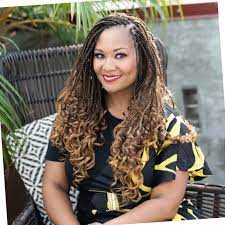By Stephanie Akunvabey
Bias is real. Let’s start there. Researchers have studied our ability to make snap judgments from a biological perspective and found that our brains are super savvy at drawing quick conclusions to help us process the onslaught of data that we encounter on a daily basis. At first glance that seems harmless, and even helpful in some scenarios. But it also creates the opportunity for us to develop all sorts of bias that can be detrimental in the workplace.
Bias impacts our ability to see people as individuals. We often lump people into large groups that we have preconceived notions about. Unconscious bias can create tangible dangers that affect how we interact with our colleagues, peers and the students we seek to serve. Many DEI trainings ask us to evaluate our biases based on race, sex, gender, age and ability, but this is only the tip of the ice-berg. Our predisposition towards bias and othering is pervasive and extends well beyond these categories. This becomes particularly problematic when it comes to the hiring process. So, what can we do about it?
Dr. Jennifer Eberhardt suggests that we create points of friction. I first heard Dr. Eberhardt speak at a conference in 2019. I was blown away by her research, she argued that we can counter bias by slowing down. Mental friction activates our conscious mind, countering the lull of unconscious bias and its ability to steam roll our decision-making processes. It turns out that we can use friction tactics to counter a wide variety of negative biases that occur in our everyday lives and in the workplace.
Let’s try adding friction to the hiring process…
Bias Checks & Disclaimers- Unconscious or Implicit Bias trainings are great at creating awareness. However, it takes an additional step to turn awareness into real-time application. Try building a search process that creates space for search committee members to practice reflection. Committee members should think about their bias towards certain degree types (ex. EdD vs. PhD) or preferences for certain colleges or universities. If these factors have no bearing on the qualifications for the role, they should not be unspoken criteria for narrowing the search pool.
Search Advocates- Search Advocates are individuals who work with the search committee to help ensure that key portions of the search process are fair and equitable. A Search Advocate, creates friction by serving as an accountability partner for the chair of the search and can help the committee navigate points of bias that may creep in throughout the process.
I recently worked to revamp the Search Advocate program at my institution. It took months of planning, hours of training, and tons of research (talk about friction). It was a collaborative effort between Human Resources, the DEI team, and campus allies who had a deep commitment to equity. Those three perspectives allowed us to create a thoughtful and more equitable hiring process. It takes work, but it’s worth it.
Rubrics & Clear Guidelines- Standardize the process. In the absence of clear policies and guidelines, people tend to make up their own rules. Rubrics and other tools can take the guess work out of evaluating candidates, and minimize subjective influences. Rubrics also help create boundaries for search committee discussions, and minimize opportunities for bias to creep in. A solid rubric keeps everyone focused on candidate qualifications, rather than non-descript feelings that aren’t justified.
One bonus takeaway- Collaboration is key. Your institution can create friction by converging different types of expertise and viewpoints to improve the hiring process. Looking to hire a new faculty member? Try adding a colleague from student support services to the hiring committee. They’ll likely have a fresh and helpful perspective.

Stephanie joined Roger Williams University in 2021 following a long career in diversity and equity work in higher education. As Vice President for Equity and Inclusion and Chief Diversity Officer, she provides strategic leadership and champions programs, policies and practices that support an anti-racist, diverse and equitable community across the university’s Bristol and Providence campuses.






